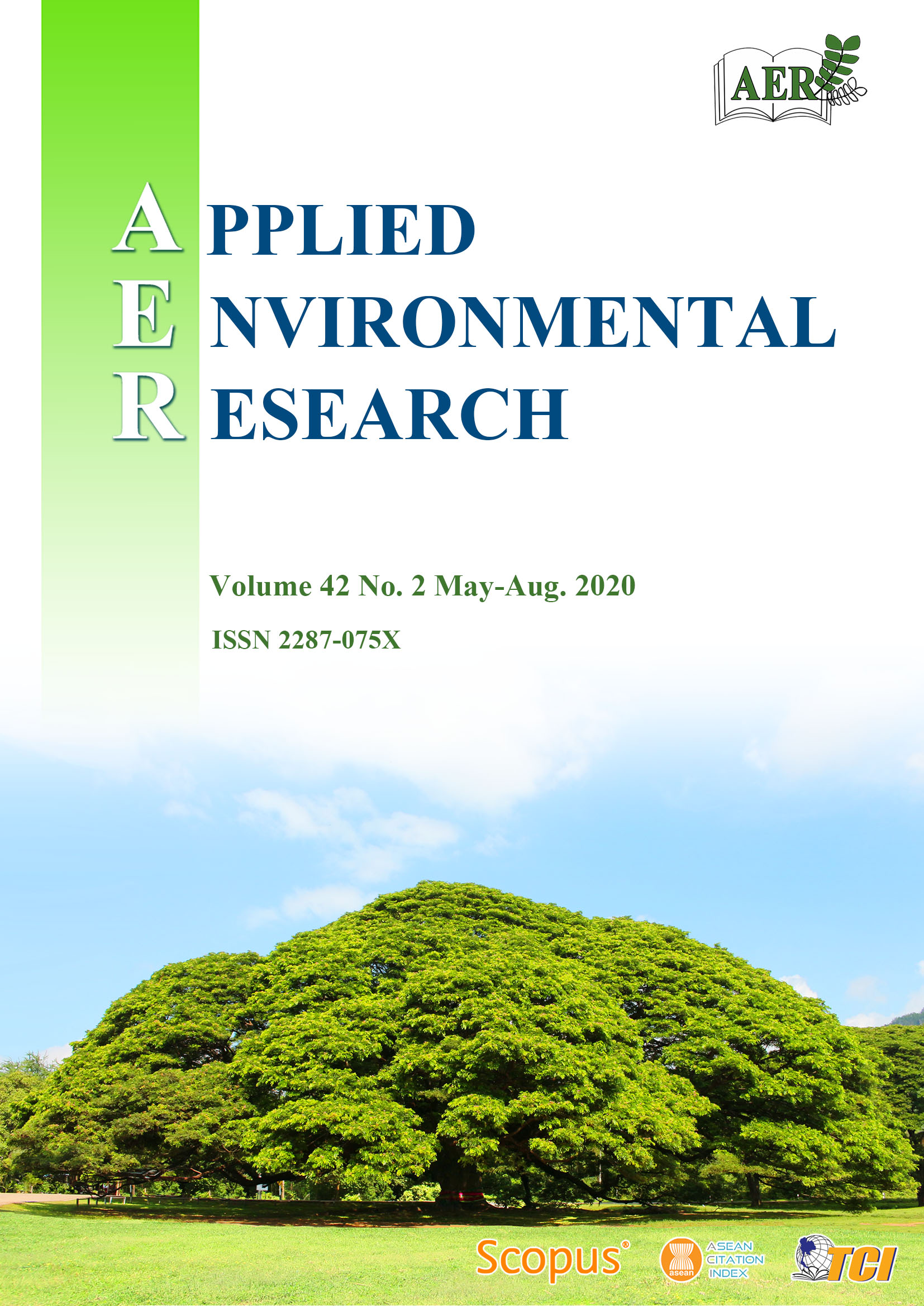Perception and Behavioral Changes of Thai Youths Towards the Plastic Bag Charging Program
Main Article Content
Abstract
Thailand has one of the highest usage of plastic bags globally, with over 45,000 million plastic carrier bags used annually. Because of its high plastic consumption and mismanagement of plastic waste, Thailand was ranked sixth globally in terms of its contribution to marine plastic pollution in 2015. While many countries have introduced plastic bag charges or taxes to reduce consumption, the Thai government is reluctant to do likewise due to political concerns about whether the public will accept this. This study presents findings on perception and acceptance level of university students towards plastic bag charging program in their campuses. We investigated the factors influencing intention and behavior and changes in students’ attitude from 2017–2019. Results show that students’ reusable/cloth bags use behavior and charge acceptance have increased over time. Testing is based on the Theory of Planned Behavior. We find that the factor which most influences consumers’ intention is perceived behavior control, which itself is determined by waste impact knowledge level and the perceived convenience of carrying reusable bag. In addition, the finding show that charging schemes are effective in breaking the habit of using plastic which will lead to a sustained change in behavior. Hence, policymakers should move implement plastic bag charging regulations in Thailand.
Article Details

This work is licensed under a Creative Commons Attribution-NonCommercial 4.0 International License.
Published articles are under the copyright of the Applied Environmental Research effective when the article is accepted for publication thus granting Applied Environmental Research all rights for the work so that both parties may be protected from the consequences of unauthorized use. Partially or totally publication of an article elsewhere is possible only after the consent from the editors.

